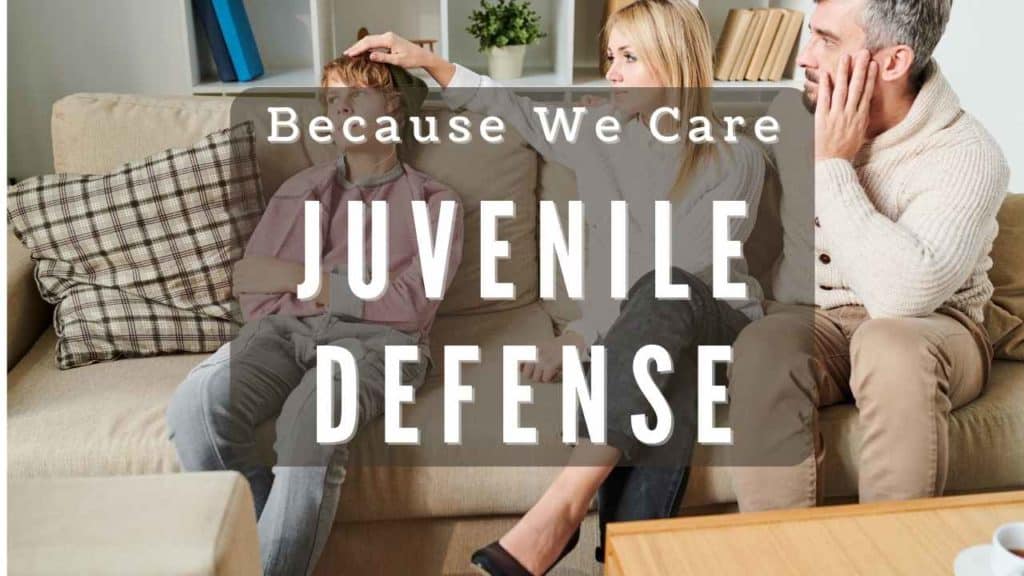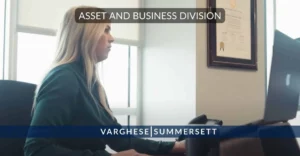Second Chances: Tarrant County’s Juvenile Diversion Programs
Let’s face it. Young people make stupid mistakes, rash decisions, and poor choices. Sometimes, those lapses in judgment land them in the juvenile justice system. While this is certainly a scary prospect, there is hope for juvenile offenders in Tarrant County – especially for youth who want to learn from their mistakes.
Tarrant County offers several juvenile diversion programs, which focus on rehabilitation, treatment, and counseling, rather than adjudication and punishment. These programs are designed to keep youth, ages 10 to 16, out of the traditional juvenile justice system and, hopefully, put them on a positive, productive path.
This article explains the different types of juvenile diversion programs offered in Tarrant County and answers some frequently asked questions. If your child has been accused of committing an offense or violation in Tarrant County, it’s important to contact a skilled juvenile defense attorney who understands juvenile diversion programs.
Attorney Lisa Herrick is Board Certified in Juvenile Law and has extensive experience getting juveniles admitted into Tarrant County’s juvenile diversion programs. She believes in second chances and will work vigorously to help get your child back on the right track without negatively impacting their future.
Please take a moment to watch this video by Lisa in which she gives an overview of some of Tarrant County’s juvenile diversion programs.
What is a Juvenile Diversion Program?
A juvenile diversion program is a way to “divert” or redirect a young offender away from juvenile court and the traditional juvenile justice process. Rather than face criminal prosecution, juveniles who are admitted into diversion programs typically receive counseling, treatment, and rehabilitation services designed to help them turn their lives around. If they successfully complete the program, charges will not be filed and they will not be prosecuted.
The goal of juvenile diversion programs is to keep kids out of court, detention, and prison – and away from the influences that got them here in the first place. These programs provide an opportunity for young offenders to learn from their mistakes, take responsibility for their actions, and make amends, while also addressing the underlying issues that may have led to the negative or criminal behavior.
What Juvenile Diversion Programs are Offered in Tarrant County?
There are several types of juvenile diversion programs available in Tarrant County. Each program is tailored to fit the individual needs of the juvenile offender, taking into consideration their unique circumstances and backgrounds. If they successfully complete the program, they will avoid prosecution and a criminal record.
-
Deferred Prosecution Probation Program (DPP)
Tarrant County’s Juvenile Deferred Prosecution Probation program (DPP) is a type of informal probation that addresses the juvenile’s criminal behavior outside of the courtroom through a supervision program. If accepted into the program, the juvenile will be supervised by a probation officer and must abide by certain conditions, including attending school, obeying the law, abiding by a curfew, and attending classes or counseling, among other conditions.
If the juvenile successfully completes the program, the case will be closed and no charges will be filed. Basically, the prosecution stops. If the child fails to complete the program or violates the conditions, the prosecutor can file the charge and send the case to court. The prosecutor could also offer a second term of DPP. Learn more about Tarrant County’s Deferred Prosecution Program.
-
Juvenile First Offender Program
Tarrant County’s juvenile first-offender program is designed to give youth who have never before been in trouble with the law a second chance. This program is offered directly by the police department before the case ever gets referred to juvenile services. According to 52.031 of the Juvenile Justice Code, the program is for first-time offenders, who have been accused of or taken into custody for:
- Conduct Indicating a Need for Supervision;
- A Class C Offense (other than a traffic ticket);
- Delinquent conduct other than a first, second, or third-degree felony, an aggravated controlled substance felony, a capital felony, a state jail felony or a misdemeanor involving violence to person or the use of or possession of a firearm, location-restricted knife, club or prohibited weapon.
Put more simply, the program is generally reserved for juveniles who commit a misdemeanor or state jail felony that doesn’t involve violence, guns, or sex offenses.
There are several court-approved first offenders programs available in Tarrant County, including at the Lena Pope Home in Fort Worth. The program involves intensive counseling and skill-building instruction. If the juvenile successfully completes a first-offender program, their case will be closed and the juvenile won’t be referred to juvenile court for prosecution. If the youth fails to complete the program, they will be referred to juvenile court for prosecution. Learn more about Tarrant County’s First Offender Program.

-
Juvenile Drug Court
Juvenile Drug Court targets juvenile offenders who have been accused of drug crimes. The program offers juveniles the opportunity to receive outpatient substance abuse treatment instead of being placed on formal probation. The program seeks to address the issues that lead to drug use, as well as the drug use itself. In addition to drug treatment, the youth will also receive counseling, drug education, and family preservation services. If the youth successfully completes juvenile drug court, the criminal case will be dismissed.
-
Project SAFeR
Project SAFeR (Safety and Family Resiliency) is a pre-disposition program for very young juvenile offenders, ages 10 to 12, who have engaged in problematic sexual behavior. It is offered by the Lena Pope Home in Fort Worth. Juveniles are required to attend individual and family outpatient therapy to address sexual behavior, boundary setting, sex education, self-regulation, social skills, and how to acknowledge and apologize for inappropriate sexual behavior. The program is designed to prevent future problematic sexual behaviors, which go beyond normal sexual development for their age. It often involves activities between youth who are quite a bit different in age or maturity.
-
Teen Court
Teen court is a diversion program for youth in middle school or high school to keep a Class C misdemeanor off their permanent record. The teen will be given the opportunity to make amends by completing a sentence set by a jury of their peers. Generally, the sentence includes performing community service or attending educational classes.
If the youth successfully completes the teen court, their ticket will be dismissed and will not show up on their record. Teen courts are located in Fort Worth, Arlington, Southlake, and other cities in the surrounding area.

How Long do Juvenile Diversion Programs Take?
The length of juvenile diversion programs can vary depending on the specific program and the nature of the offense. Some programs may last a few months, while others may last up to a year.
What are the Benefits of Juvenile Diversion Programs in Tarrant County?
Juvenile diversion programs offer several benefits over traditional juvenile court proceedings. First and foremost, it’s way to resolve your child’s case without going through the criminal justice system. It also allows the juvenile to take responsibility for their actions, while learning from their mistakes in a more positive and constructive setting. Finally, it can provide youth with access to services that may help address underlying issues that have led to negative or criminal behavior, increasing the chances of rehabilitation and a successful future.
Child Accused of an Offense? Call Lisa Herrick.
If your child has been accused of a crime in Tarrant County, you need an experienced juvenile attorney to protect your child’s freedom and future. Attorney Lisa Herrick has devoted her career to juveniles accused of crimes. She is considered an expert in juvenile law, a highly specialized area that very few North Texas attorneys understand.
Don’t let your child become another statistic in the juvenile justice system. Contact Lisa today to discuss how she can get you and your family through this difficult time. Ultimately, her goal is for juveniles in Tarrant County to receive a second chance at a productive life and avoid future brushes with the law. Call 817-203-2220 for a free consultation with Lisa today.




